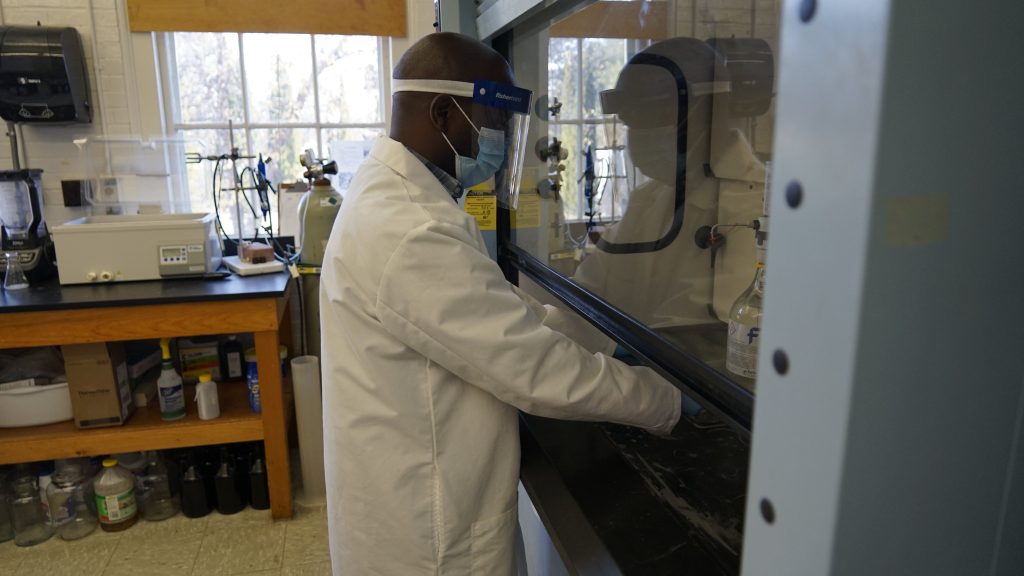PFAS Project
Assessing the impact of PFAS contamination on the forage-herbivore-human continuum to develop strategies aimed at reducing PFAS contamination in affected livestock farms (PIs: Romero and Pereira)
Summary: PFAS are a group of synthetic chemicals known for their persistence in the environment and health risks to humans and animals. PFAS can be transferred to milk and meat from contaminated forage and/or water. PFAS, especially perfluorooctane sulfonic acid (PFOS), has a higher tendency to bioaccumulate in animal and human tissues, and is associated with health risks in humans and animals. Livestock operations contaminated by biosolid applications, nearby airfields using PFAS-rich firefighting foam, and industries emitting PFAS, face issues of PFAS bioaccumulation in animal tissues and milk that can pose a danger to consumers. As a result, the state of Maine has set action levels for PFOS in milk (210 ppt) and in beef (3,400 ppt), and several dairy farms have been closed due to contamination of PFAS in their land. We are developing holistic and sustainable mitigation strategies to reduce PFAS contamination in milk and beef. The goal is to generate information to guide decision-making policy, future research, and recommendations.
Funded by the American Farmland Trust, Maine Department of Agriculture, Conservation, and Forestry, and the University of Maine Food and Agriculture Center and the College of Earth, Life, and Health Sciences.
If you would like to make a gift to support PFAS research in livestock, please send an e-mail to juan.romero@maine.edu so we can guide you on how to proceed with the University of Maine Foundation.

